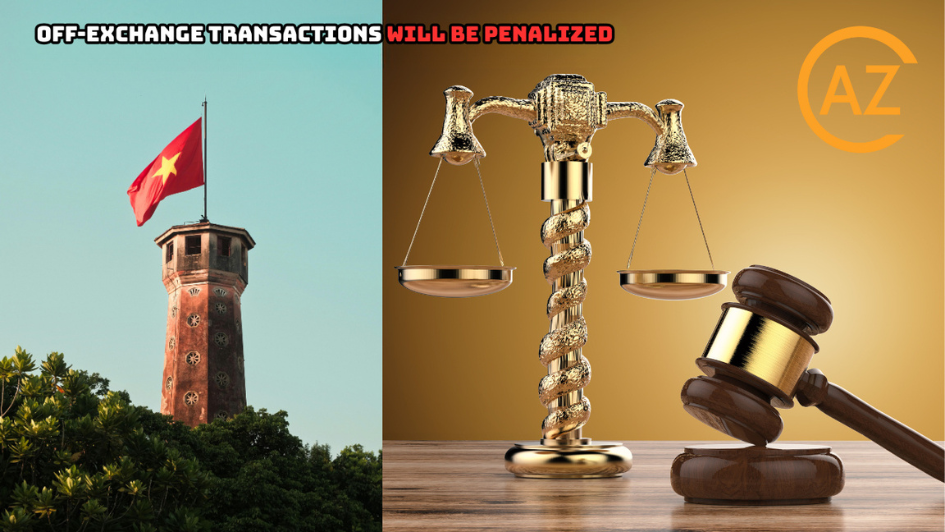What are the penalties for trading outside official exchanges?
If investors do not trade on officially licensed exchanges, what penalties will they face?

CryptoAZ Source
On September 9, 2025, the Government issued Resolution 5/2025 on piloting the digital asset market in Vietnam. This is an important milestone, bringing the issuance, offering, and trading of digital assets into a legal framework during a five-year trial period.
One of the most notable provisions of this Resolution is that domestic investors are required to trade digital assets exclusively through service providers licensed by the Ministry of Finance.
This regulation means that any trading activity outside the official system is considered illegal and will be subject to penalties under the law.
Official trading regulations
- Domestic investors are allowed to open accounts at licensed service providers for custody, buying, and selling of digital assets.
- For at least six consecutive months, investors must maintain their trading activities within the official framework.
- Digital assets are only permitted to be issued based on real underlying assets — excluding securities and the Vietnamese đồng (VND).
- All transactions, payments, and transfers must be conducted in VND and through certified and supervised systems.
What if you trade outside official exchanges?
According to the Resolution, activities of buying, selling, or exchanging digital assets outside of licensed exchanges will be handled depending on the severity of the violation:
Administrative sanctions
- Monetary fines, official warnings, and orders to cease trading.
- Confiscation of assets, freezing of accounts related to illegal transactions.
- Temporary suspension of the right to participate in the digital asset market.
Criminal liability
If the conduct involves fraud, asset appropriation, tax evasion, money laundering, terrorist financing, or causes serious damages, the investor may face prosecution under the Penal Code.
Penalties may range from large monetary fines to imprisonment, depending on the asset value and seriousness of the offense.
Why tighten control over off-exchange trading?
- Investor protection: Many scams and “ghost exchanges” have taken place in Vietnam and abroad, causing heavy losses. Mandatory trading on official exchanges helps reduce the risk of losing assets.
- Anti–money laundering and financial crime prevention: Digital assets have been misused to conceal illicit cash flows. The new control mechanism helps prevent this.
- Market transparency: With all activities supervised, data becomes clearer, enabling regulators to evaluate the scale and effectiveness of the pilot market.
- Cybersecurity and data protection: Official exchanges must meet strict technology standards, safeguarding user information and minimizing cyberattack risks.
Advice for investors
- Trade only via licensed organizations: Avoid all forms of peer-to-peer (P2P) transactions or unrecognized international exchanges.
- Follow official announcements: The Ministry of Finance will publish the list of authorized service providers.
- Declare and comply with tax obligations: Currently, taxation applies similarly to securities, though specific regulations may be introduced later.
- Invest prudently: The digital asset market remains volatile. Investors should carefully assess risks and avoid blind “short-term speculation.”
Conclusion
Vietnam’s digital asset market is entering a pilot phase with strict regulatory oversight. Allowing trading only on official exchanges is not just a legal requirement — it is also a measure to protect investors and safeguard the entire market.
Those who persist in off-exchange trading risk facing administrative fines or even criminal charges. Therefore, complying with regulations not only helps avoid legal risks but also contributes to building a transparent and sustainable digital asset market in Vietnam.